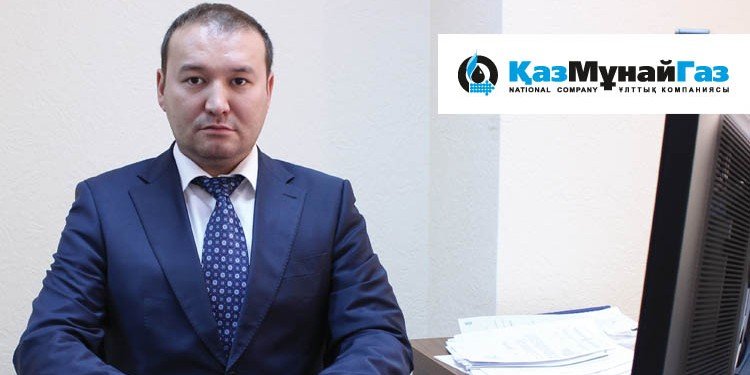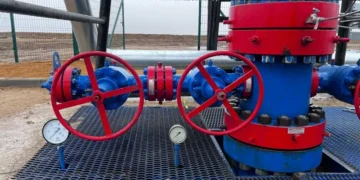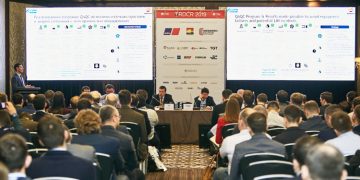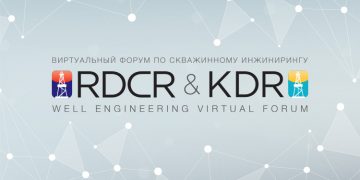The ROGTEC Interview: Murat Abdigaliyev, Director, Drilling and Well Services Department, JSC NC KazMunayGas
As the Director of Drilling Department at JSC NC KazMunayGas, what is your day to day role in the company and what are your goals over the coming years?
My role is currently to coordinate and participate in drilling projects within KMG and its subsidiaries, analyze and evaluate drilling at KMG and develop technical solutions for drilling. I also provide recommendations for drilling subsidiaries, identifying potential areas for optimizing technology during well construction aimed at reducing the cost of drilling, as well as introducing and developing new technologies for drilling and improving the quality of wells.
The recent lowering of the price of oil has reduced the amount of planned drilling projects in many parts of the world. Tell us about current drilling levels in Kazakhstan and what is your forecast for the near future?
At the moment, there is a decrease in drilling wells in Kazakhstan. Meanwhile, the oil service market in Kazakhstan can be defined as a dynamic, and able to offer a significant amount of work in drilling companies and operators
What is the condition of the region´s drilling fleet and what upgrade and modernization plans exist for the fleet or will be required to bring the fleet up to the required standards?
Currently in Kazakhstan we have a fleet of mobile rigs, with a capacity to reach 3500 meters. On average these rigs were produced between 2000-2007. We also have a fleet of relatively new rigs. However technological, these rigs are essentially identical. KazPetroDrilling also imported, and are successfully operating, a new SuperSingle Rig, and LLP «Zhigermunayservice» recently produced their first heavy, 2500 hp rig.
Heavy drilling rigs used for long-term contracts are either manufactured using a Client’s design or upgraded to suit various Client’s requirements in accordance with different geotechnical conditions and drilling technologies selected by Client.
Have you experienced any issues in Kazakhstan through not having suitable rigs or drilling services for your needs?
KMG does not have such an issue when drilling wells up to 3000 m deep. A specific Operator has requirements for deep-drilling rigs, depending on special aspects of well drilling which are generally met by a rig upgrade.
How are you ensuring that the correct drilling equipment is utilized on each project?
Use and application of drilling equipment is specified in the technical specifications / instructions of the customer by a tender for the selection of drilling contractors. Following this, the subsidiaries carry out the necessary control of the drilling process.
JSC NC KazMunayGas completed some offshore drilling projects earlier this year. How successful were the drilling programs on these wells and what are your future plans for offshore drilling?
KMG participates in the projects of N-Operating, Satpayev Operating, СМОС and Zhambyl. All offshore drilling was completed ahead of schedule. The work was performed on a daily rate basis, achieving respective savings. No accidents occurred during offshore drilling. Future plans depend on exploration drilling as well as on field development concepts. Currently, exploration drilling is being performed.
Kazakhstan is starting to drill more complex wells, could you briefly describe some of the more challenging drilling projects which you are working on?
For KMG these are Urikhtau Operating and Ural Oil and Gas Operating projects which involve drilling wells 3600 – 6300 m deep. In Urikhtau Operating we have identified drilling technologies and currently are carrying out geomechanical modelling to ensure the success of
well drilling.
You recently attended the RDCR, Russian Drilling Roundtable, in Moscow. What did you take away from this event in terms of the key differences between Russian and Kazakh drilling markets, and what can each market learn from the other?
The RDCR agenda included many issues related to local content and the competitiveness of RF manufacturers and service companies. Possibilities for operation and optimization in an increased tax environment were also discussed. The RDCR objective was to enable a Client – Contractor dialogue and discuss possibilities of government support for suggested solutions to resolve complex issues in the regions. The agenda also included field development, i.e. exploration drilling in the country’s remote regions.
In Kazakhstan, many issues related to the support of local content are resolved at legislative level. We also do not experience any problems buying some imported technologies. But, essentially, it would be a dialogue in the form of exchanging experience in resolving specific drilling challenges and considering all possible ways of optimization and reduction of well construction costs.
The upcoming 1st Kazakh Drilling Roundtable, KDR, will focus on the key challenges faced in the Kazakh drilling sector. JSC NC KazMunayGas is the event’s Platinum Sponsor and General Event Partner – What would you say are the most pressing drilling areas that need to be addressed at the event?
The most relevant issues are:
• Provision of separate services
• Drilling in low pressure areas
• Improvement of drilling mud
• Wellbore stability, geomechanical well modelling
• Reduction in deep well construction schedule
• Improvement of cementation quality
• Horizontal well drilling
• High-pressure wells
Finally, with many companies looking to enter the Kazakh oil and gas sector, what advice would you give to companies who are looking to work with JSC NC KazMunayGas and your subsidiaries? How should they approach you to conduct business?
One option is the creation of joint ventures, including with KMG, that would introduce new technology and transfer new knowledge and skills to local staff in line with international standards.







